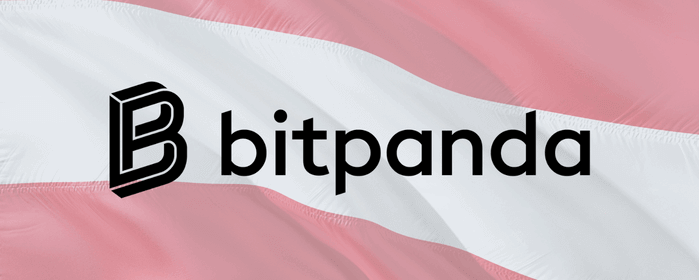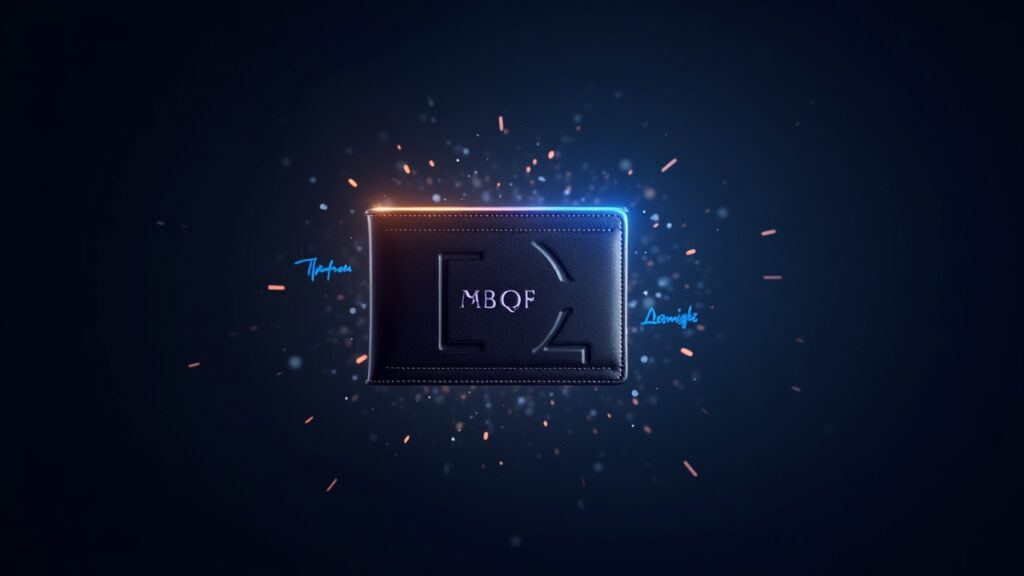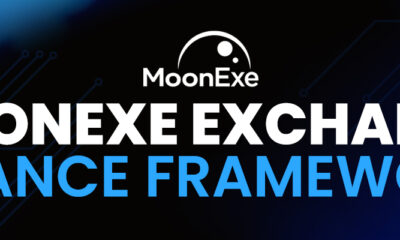Tech
N26 Mobile Bank Partners With Bitpanda to Launch a New Crypto Product

The German mobile bank N26 and the Austrian Bitpanda crypto firm have partnered to launch a product called “N26 Crypto” that will enable users to buy and sell 200 different crypto assets, such as Bitcoin and Ethereum, within the N26 app.
The Mobile Bank strives to offer the same simple and intuitive user interface to make the complicated nature of trading cryptocurrencies as seamless as possible.
Also, it aims to provide helpful and relevant content to educate users who are learning about the asset class for the first time.
Only Austrians Can Access N26 Crypto For Now
According to an October 20th statement released, the recently introduced product will begin in Austria and expand to other nations over the next few weeks.
This debut in Austria, as per the bank, satisfies “high local demand,” with 40% of N26 clients either actively trading in cryptocurrencies or expressing interest in doing so.
However, clients who have completed the identity verification and eligibility checks for their N26 can access N26 Crypto from the “Trading” area under the new “Finances” page in the N26 app.

They only need to choose the coin and the amount they wish to trade to create a position; the monetary equivalent of the trade will then be taken from their bank account, and the coins will appear right away in their N26 Crypto portfolio.
They claim that the same applies when users choose to end an open position in their N26 Crypto, with funds being made available in their main bank account after the position is closed.
A Simple Way to Invest In Cryptocurrencies
Although the value of cryptocurrencies has decreased over the past year, co-founder and co-CEO of N26, Valentin Stalf, said that they are still a sought-after and intriguing asset class for investors and a burgeoning component of the financial system.
“Cryptocurrency trading is often the entry point to investing for a new generation of investors who are looking to explore ways to grow their wealth,” he proceeded. “With N26 Crypto, we are offering a simple way to trade and invest, with great user experience and low and transparent fees.”
Accordingly, the product, which will initially offer 100 coins for trading, will allow N26 Metal customers to make transactions with a transaction fee of 1% for trading Bitcoin and 2% for trading all other available cryptocurrencies, while all other N26 customers will be able to trade Bitcoin with a transaction fee of 1.5% and a fee of 2.5% for trading other cryptocurrencies.
The post N26 Mobile Bank Partners With Bitpanda to Launch a New Crypto Product appeared first on The Cryptocurrency Post.
Tech
qLABS takes the lead in quantum security amid growing pressure for crypto companies

The advancement of quantum computing has ceased to be an academic theory to become an imminent threat that companies must face. In this context, qLABS, a foundation specialized in cryptographic infrastructure, has announced the launch of its qONE token and its Quantum-Sig wallet to protect digital assets.
This initiative arises at a critical moment where elliptic curve signature systems, essential for the security of networks like Ethereum or Solana, could become vulnerable to powerful quantum machines. However, qLABS proposes an immediate resistance layer, avoiding the wait for slow structural updates in the main blockchains.
Technical innovation to neutralize the risk of future decryption
Unlike other projects that seek to rebuild networks from scratch, qLABS’ proposal is based on implementing a post-quantum security layer over already existing infrastructures. Its system uses a dual-signature technology, which requires both the classical signature and a second signature resistant to quantum attacks to validate any transaction.
This approach seeks to mitigate the danger known as “harvest now, decrypt later,” a strategy where malicious actors collect data today to compromise private keys when quantum technology matures. Furthermore, the qONE token presale, scheduled for February 5, will mark a milestone in the commercialization of services of advanced security.
How do the giants of the sector plan to respond to this technological challenge?
While qLABS deploys tangible solutions, other large-scale companies like Coinbase have opted to strengthen their research frameworks through independent advisory committees. Despite these corporate efforts, the agility of quantum-native protocols is raising the protection standards demanded by global investors and developers.
On the other hand, networks like Aptos have already proposed signature schemes based on NIST standards, demonstrating that the transition toward post-quantum cryptography is a strategic priority. Thus, the market observes how competition shifts from scalability toward long-term resilience against disruptive computational capabilities.
The adoption of these tools will define the survival of assets in the next decade, especially as estimates for the arrival of “Q-Day” shorten significantly. Therefore, the cryptocurrency ecosystem is in a preventive migration phase, where success will depend on implementing robust defenses before the threat becomes an inevitable technical reality.
The post qLABS takes the lead in quantum security amid growing pressure for crypto companies appeared first on The Cryptocurrency Post.
Tech
Decentralized GPU Computing Networks Dominate AI Inference Within the 2026 Market

The artificial intelligence landscape has undergone a profound structural transformation during the beginning of this year, shifting the focus from massive training to the efficient execution of models. While hyperscale data centers maintain their hegemony in frontier model development, decentralized GPU computing has established itself as the essential layer for inference and everyday production tasks.
According to Mitch Liu, co-founder of Theta Network, the optimization of open-source models allows them to run with astonishing efficiency on consumer-grade hardware. This trend has allowed 70% of global processing demand to shift toward inference and autonomous agents, transforming compute into a scalable and continuous utility service for companies of all sizes and industries.
A Paradigm Shift: From Skyscraper Construction to Distributed Utility
The industrial analogy is clear: if training a frontier model is like building a skyscraper that requires millimeter-level coordination, inference is more akin to the distribution of basic services. In this context, decentralized networks take advantage of variable latency and geographical dispersion, offering a low-cost alternative to the monopolies of traditional cloud providers.
On the other hand, hyperscale infrastructure remains indispensable for large-scale projects, such as the training of Llama 4 or GPT-5, which demand clusters of hundreds of thousands of Nvidia cards. However, for blockchain and consumer applications, the ability to process data close to the end-user represents an insurmountable competitive advantage in terms of response speed and efficiency.
Furthermore, the flexibility of these networks allows for handling elastic demand waves without the rigid contracts of tech giants. By using idle gaming-grade hardware, decentralized platforms manage to drastically reduce the operating costs of AI startups, allowing innovation to not depend exclusively on multi-million dollar budgets or privileged access to hardware supplies.
Why Is Inference the New Battlefield for Distributed Networks?
Unlike training, which requires constant synchronization between machines, inference allows workloads to be split and executed independently. This technical feature is what allows decentralized GPU computing to shine, as the global dispersion of nodes minimizes network hops and reduces latency for users in remote or underserved regions.
In addition, sectors such as drug discovery, video generation, and large-scale data processing find this model to be an ideal solution. In this way, tasks requiring open web access and parallel processing can be executed without proxy restrictions, facilitating a much more democratic and accessible development ecosystem for the global community of researchers and developers.
Looking ahead, the coexistence between centralized data centers and distributed networks is expected to normalize under a hybrid model. The success of this transition will depend on the networks’ ability to maintain compute integrity, ensuring that decentralization does not compromise the accuracy of the results generated by today’s most advanced artificial intelligence models.
The post Decentralized GPU Computing Networks Dominate AI Inference Within the 2026 Market appeared first on The Cryptocurrency Post.
Crypto Currency
TronBank Positions Itself as a Yield-Focused DeFi Hub on TRON

TronBank is emerging as a growing decentralized finance platform within the TRON ecosystem, aiming to combine on-chain banking functions with yield generation tools. As activity across TRON-based DeFi continues to expand, TronBank is positioning itself as an access layer for users seeking passive income, capital efficiency, and simplified interaction with decentralized financial products.
Built on the TRON blockchain, TronBank focuses on speed, low transaction costs, and accessibility—core attributes that have helped TRON remain a popular network for retail-focused DeFi use cases. The platform’s design reflects a broader trend within DeFi toward protocol-level financial services that resemble traditional banking, while remaining non-custodial and transparent.
TronBank’s Role in the TRON DeFi Ecosystem
At its core, TronBank functions as a DeFi banking protocol, offering users tools to deploy capital into yield-generating strategies native to the TRON network. Rather than positioning itself as a single-purpose application, TronBank aims to serve as an integrated financial layer where users can manage assets, earn yield, and interact with DeFi products through a unified interface.
The protocol benefits from TRON’s infrastructure advantages, including fast block times and minimal fees, which reduce friction for frequent on-chain interactions. This makes TronBank particularly suited for users who prefer active yield strategies without the high costs often associated with Ethereum-based DeFi platforms.
Yield Generation and Token Utility
TronBank’s ecosystem revolves around its native token, which plays a central role in governance, incentives, and platform utility. Token holders may benefit from protocol-driven rewards, participation in ecosystem decisions, and potential fee-sharing mechanisms, depending on the platform’s evolving economic model.
Yield opportunities on TronBank are structured to appeal to both conservative users seeking steady returns and more active participants pursuing higher-yield strategies. By focusing on sustainability rather than short-term incentives, the platform appears to be aligning itself with longer-term DeFi participation rather than speculative farming cycles.
This approach reflects a broader shift in DeFi, where protocols are increasingly emphasizing capital efficiency, risk awareness, and predictable returns over aggressive emissions.
Security, Transparency, and User Focus
Security remains a critical factor for DeFi adoption, particularly for platforms positioning themselves as financial infrastructure. TronBank emphasizes on-chain transparency and non-custodial asset control, allowing users to retain ownership of funds while interacting with smart contracts.
While DeFi platforms across the industry continue to face scrutiny over risk management, TronBank’s positioning within the TRON ecosystem may benefit from the network’s established user base and stable transaction environment. As always, users are expected to evaluate smart contract risk independently when engaging with decentralized protocols.
Why TronBank Is Gaining Attention
TronBank’s growing visibility reflects increasing demand for DeFi products tailored to high-throughput, low-cost blockchains. As capital continues to flow into alternative Layer 1 ecosystems, platforms like TronBank stand to benefit from users seeking efficiency without sacrificing functionality.
By framing itself as a decentralized banking layer rather than a single-feature DeFi application, TronBank is tapping into a narrative that resonates with both retail users and yield-focused participants. If adoption continues, the platform could become a notable component of TRON’s broader DeFi landscape.
As decentralized finance matures, protocols that combine usability, cost efficiency, and sustainable incentives are likely to define the next phase of growth. TronBank’s development trajectory suggests it is aiming to be part of that evolution.
-

 Crypto4 years ago
Crypto4 years agoCardalonia Aiming To Become The Biggest Metaverse Project On Cardano
-

 Press Release5 years ago
Press Release5 years agoP2P2C BREAKTHROUGH CREATES A CONNECTION BETWEEN ETM TOKEN AND THE SUPER PROFITABLE MARKET
-

 Blockchain5 years ago
Blockchain5 years agoWOM Protocol partners with CoinPayments, the world’s largest cryptocurrency payments processor
-

 Press Release5 years ago
Press Release5 years agoETHERSMART DEVELOPER’S VISION MADE FINTECH COMPANY BECOME DUBAI’S TOP DIGITAL BANK
-

 Press Release5 years ago
Press Release5 years agoProject Quantum – Decentralised AAA Gaming
-

 Blockchain5 years ago
Blockchain5 years agoWOM Protocol Recommended by Premier Crypto Analyst as only full featured project for August
-

 Press Release5 years ago
Press Release5 years agoETHERSMART DEVELOPER’S VISION MADE FINTECH COMPANY BECOME DUBAI’S TOP DIGITAL BANK
-

 Blockchain6 years ago
Blockchain6 years ago1.5 Times More Bitcoin is purchased by Grayscale Than Daily Mined Coins












